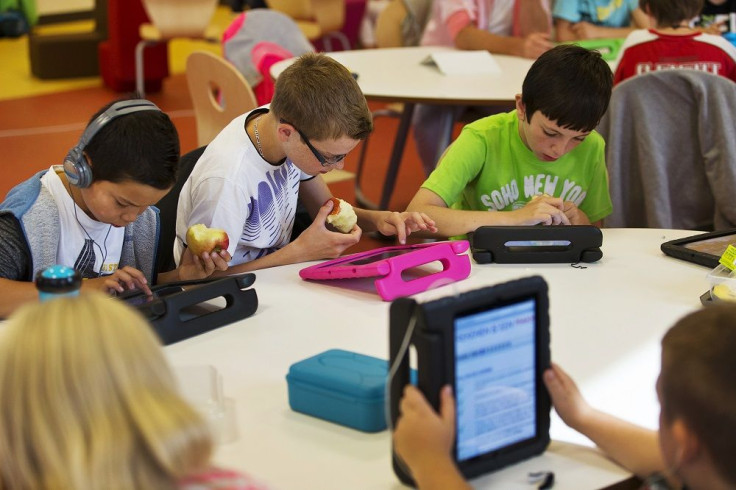Experts claim that using iPads and smartphones improves toddlers’ learning and development

iPads and smartphones teach children the same way as conventional interactive play does. New research from the Department of Paediatrics and Child Health at Cork University Hospital in Ireland show that majority of two-year-olds who have access to these gadgets can already swipe, unlock and search for apps and features.
“Touch-screen platforms, when used to their strengths, present many features which differentiate them from other forms of media and offer the potential for more positive effects,“ lead author Deirdre Murray said. “Interactive touch-screen applications offer a level of engagement not previously experienced with other forms of media and more akin to traditional play.”
The Daily Telegraph noted that this opens up the potential application of these devices for both assessment of development and early intervention of developmental disorders.
After examining 82 parents with children between 12 months and three years, the researchers discovered that 87 percent of the parents allowed their children to play with the gadgets for 15 minutes daily.
Nine out of 10 parents reported that their children was capable of swiping, unlocking and searching for features, with toddlers achieving these feats at an average age of 24 months, similar to what regular play creates. Experts warn, however, that these applications are not regulated for their quality, educational value or safety.
Macworld reports that Lydia Plowman, a professor at the University of Edinburgh, said that guided interaction such as asking questions, making suggestions, providing encouragement, praising achievements and helping children deal with their frustrations are crucial to building confidence and supporting play and learning. Murray’s team concluded that further studies must be considered to dig deeper into how these gadgets benefit learning.
Contact the writer at feedback@ibtimes.com.au or tell us what you think below.




















